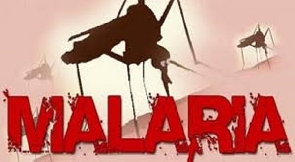 Reports says 17 MMDAs did not get budget for malaria programmes
Reports says 17 MMDAs did not get budget for malaria programmes
A survey conducted by the People for Health (P4H) project in 20 Metropolitan, Municipal and District Assemblies (MMDAs) in Ghana has disclosed that MMDAs are either not devoting or devoting very little of their budgetary allocations to fight malaria in the country.
The survey, which was carried out through Participatory Monitoring and Evaluation (PM&E) exercise, focusing on both the District Medium Term Development Plans (DMTDPs) from 2018 to 2021 and the District Assemblies Common Fund (DACF) for malaria control programmes, also showed that the MMDAs were abusing the guidelines for the utilisation of the DACF developed by the Common Fund Secretariat.
“…analysis of the MMDAs expenditure pattern of district plans and budget do not support the government policy of zero cases of malaria in Ghana by 2030,” the survey averred.
The survey adopted the purposive method of sampling in selecting the 20 MMDAs from four regions in the country including Northern, Eastern, Volta and Greater Accra. The MMDAs included; Tamale Metro, Yendi, East Mamprusi, Central Gonja, Gushegu, New Juaben (North/South), Afram Plains North, Lower Manya Krobo, Birim South and Akuapem North.
The rest were La Dadekotopon, La Nkwantanang, Accra Metro, Tema Metro, Ashaiman, Krachi East, Nkwanta South and North, Agbetime Ziope and Adaklu.
The survey report, sighted by this reporter, accounted that in the data analysis for the DMTDPS, 17 out of the 20 MMDAs, representing 85 percent, submitted their DMTDPs for analysis.
It further reported that, 15 out 20 MMDAs, representing 75 percent, responded on the 0.5percent DACF allocation for malaria programmes questionnaires, which was an indication that a number of MMDAs virtually had no interest in talking about their malaria control efforts.
According to the findings of the survey, data from the 17 DMTDPs revealed that 4 out of the 17 MMDAs did not budget for malaria programmes in their DMTDPs in the years under review (that is 2018 to 2021).
It further disclosed that out of the total budget of GH? 1.6 billion allocated to the 2018-2021 DMTDPs for the MMDAs, only GHC1million representing 0.1 percent has been allocated to malaria prevention and treatment; and “of this amount, GOG is expected to contribute GH? 499,160.93 (48.0%) with the assemblies devoting 109,536.5 (10.8%) of their IGF to support malaria programmes.”
The survey also found out that on the management and utilisation of the 0.5 percent DACF for Malaria, 4 out of the 12 MMDAs that provided data on the DACF for malaria do not comply with the directives by the Common Fund Secretariat to allocate 0.5% to support malaria control programmes.
“The 8 assemblies which indicated compliance, one assembly (Accra Metro) could not provide information on allocations for 2015, 2016 and 2017 thereby raising concerns about their claim,” it stated.
Citing reasons for the non-compliance, the survey stated, “The main reasons cited for the non-adherence by these assemblies are the lack of comprehensive guidelines for utilisation of the 0.5 percent for malaria and also lack of request from the District Health Management Teams (DHMTs) to the assemblies for the release of the funds.”
“One assembly did not know that it has to deduct 0.5 percent for malaria programmes,” the survey stated while adding that none of the MMDAs studied had a separate bank account for the management and utilisation of the 0.5 percent DACF allocation for malaria programmes.
“Unlike the 0.5 per cent DACF for HIV programmes and the DACF for Persons with Disability (PWD) which have separate accounts at the assembly level for the management of the funds, the 0.5 per cent for malaria does not have.
“The current practice is that the total DACF for the assemblies are transferred into their accounts. The assemblies are then asked to use 0.5 per cent of that amount for malaria programmes. This has led to a situation where the assemblies have deliberately refused to open accounts for the malaria funds with the excuses of having too many accounts which increase their transactional cost,” the survey stated.
Malaria remains among the top causes of mortality and morbidity in Ghana. An analysis of the district malaria profile showed an average of 35% of all OPD Cases attributed to malaria, and also account for 8% of under 5 deaths.
However, reports have it that external funding which hitherto contributed the lion share of malaria control programme expenditures is currently on the decline.
Organisations such as Speak-Up Africa, National Malaria Control Programme and the African Media in Malaria Research Network (AMMREN) as well as other partners have, for the meantime, polled resources to embark on "Zero Malaria Starts With Me" campaign to deal with the disease.
However, the need for MMDAs to prioritize local resources mobilisation and investment in malaria control programmes in DMTDPS and annual action cannot therefore be overemphasised.
“The fight against malaria should be seen as a developmental challenge rather than a health issue. That is one of the surest ways by which enough resources could be made available to tackle the issue at the local levels.
"The current rate of 1 % of the expected revenue for financing malaria programmers is highly unacceptable. NDPC should ensure that resources allocated to DMTDPs are equitably distributed among all sectors,” the survey recommended
It further recommended that “The Common Fund Secretariat should ensure the 0.5% for malaria programmes is deducted at source. This will ensure efficient management and utilisation of the fund for its intended purpose. The current system where assemblies have been given the discretion to spend the funds, and in some cases do not even consult the DHMTs on malaria issues is quite disturbing.”